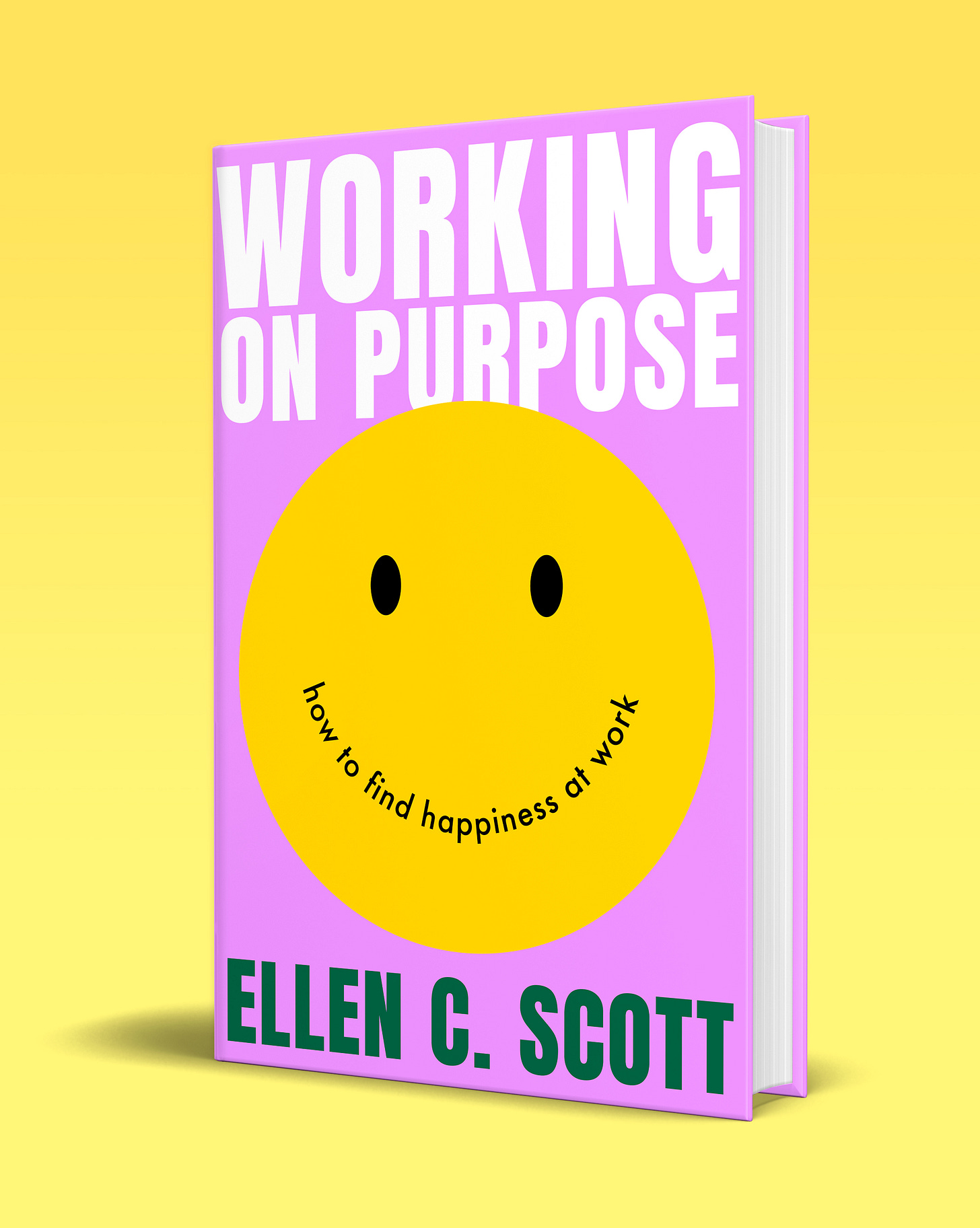'Embitterment' is the under-discussed issue that's making workers miserable
Here are 6 ways to tackle it.
When describing the emotional impact of a negative work day, we tend to use the same words on repeat. We’re exhausted, stressed, fed up, pissed off. If the issues are longer-term, we’re now all very familiar with the term ‘burnout’. And every few months there will be a new work trend to give you a shorthand for how you’re feeling about your job – years back you might have been leaning in, then you went down the scale to quiet quitting.
However you sum up your relationship with work, ‘embittered’ is unlikely to be on the tip of your tongue. Probably because it’s got the word ‘bitter’ right in the middle, and few of us want to be described as that. It sounds unpleasant, grouchy, envious.
But ‘embitterment’ sums up what I’ve heard from a lot of people about their feelings towards work in recent years. It’s defined as a mental and emotional response to perceived injustice; the result of feeling like a situation just isn’t fair. When you’re embittered, you’re resentful, and you might react to that by getting angry or sinking into despondency. It’s marked by a sense of helplessness; of things happening to you rather than you having any control.
You might feel embittered as you observe a colleague rising up the ladder when they, in your eyes, don’t deserve the recognition. Or perhaps it’s triggered when you observe a completely uneven distribution of workload and expectations among a team; it’s easy to become embittered when you’re slogging away while someone else puts their feet up. Embitterment can absolutely arise when your boss makes decisions that don’t make sense or your manager tasks you with something that’s a complete waste of your time. You might experience sudden embitterment when you witness the higher ups making a decision that completely goes against your values, such as firing someone brilliant or allowing the CEO to say something morally repugnant. You get the idea.
When embitterment sets in, it can have ruinous effects. Chronic embitterment or post-traumatic embitterment disorder is not in the DSM, but since 2003 it has been discussed in the field of mental health, with researchers noting impacts such as extreme distress, obsessive thoughts, and a struggle to get on with normal life. Not everyone will experience embitterment to this extent, but even in lower doses I believe it’s a phenomenon worth taking seriously. There’s research to suggest that embitterment might make workers more likely to take sick leave, and it stands to reason that being embittered is unlikely to make someone the best, most productive worker possible. Discussions of embitterment at work often note how an embittered employee can become difficult to work with; they might be aggressive and reactive, kicking up a fuss when asked to do tasks or struggling to get on with coworkers or bosses.
So, it’s in employers’ interest to prevent embitterment from happening. And in employees’ interests, too, because all that rumination and despair doesn’t sound particularly fun. What can be done to tackle embitterment or stop it taking hold in the first place? Here are some ideas…
Be fair
Obvious first answer to the question of how to stop employees getting hurt by unfairness: bosses and organisations at large should make every effort to be fair. That means treating everyone well, having consistent standards and demands across the business, getting rid of any prejudice, rewarding good work and taking appropriate action in response to bad work, doing what you say you’ll do, that sort of thing. If every level of a workplace is making a conscious effort to act in a moral and just way, it’s far less likely that workers will experience a sense of chronic injustice. Makes sense, right?
Be up-front and honest – and talk about the ‘why’
Often a sense of unfairness arises from shrouding processes and decisions in mystery, or not being entirely honest about why certain actions have been taken. It’s easy for people to fill in gaps with the worst possible explanation. So… don’t leave gaps! Having managers and bosses be explicit about why everything’s being done will not only help give workers a better understanding of the company they work for, but will also build trust. It’s always a good idea to treat workers like adults who can handle the truth.
Consider the impact of promotions
Promoting someone is good for general office morale, right? It shows that progression and payrises are possible! It inspires everyone else to keep pushing forward! Yes… but only if the promotion is seen as what that particular person deserves. If an organisation seems to consistently promote or reward people who aren’t doing their fair share of graft – or worse, have done actively harmful things at work such as bullying staff – resentment is going to build and build. Don’t stop giving out promotions because you don’t want to make people jealous, that’s obviously not the solution… but do be aware of the ripple effect of each reward you give members of staff and be absolutely certain that you’re rewarding the right things.
Similarly, only giving payrises to staff who threaten to leave is going to piss off your loyal employees who are continuing to work hard while they see everyone else’s salaries rise. Watch out for that.
Talk it out
This one’s for workers rather than bosses: when you’re beginning to experience embitterment, there’s immense power in venting about how bloody unfair everything is. That might be a chat with your colleagues who also recognise the injustice, but equally you might want to take the frustration out of the workplace and instead chat it through with a friend or a therapist. Sometimes, just having your disgruntlement validated makes a huge difference (‘no, you’re not imagining it, that really is shit’) and talking through the rage can be just what you need to avoid stewing on it internally and letting it infect every bit of your life.
Show appreciation
A new piece of research found that being appreciated by colleagues – say, your manager thanking you for the effort you’ve been putting in or a peer letting you know how brilliant your presentation was – can provide a buffer against embitterment. The lead author of the study, Dr Evie Michailidis, said: "The importance of appreciation for mitigating feelings of embitterment cannot be overstated. Without appreciation, unreasonable tasks foster feelings of embitterment that spill over into private lives, making it harder to mentally disconnect and recover after work."
Address the elephant
You know, that big elephant that’s been huddling in the corner. Bosses might see the symptoms of embitterment (lashing out in meetings, grumbles about nothing being fair in one-to-ones, looking generally resentful) and be scared to acknowledge them. No one likes difficult conversations (hence the name, difficult conversations). And often managers will know exactly what’s caused the distress. Middle managers are probably feeling a bit embittered by the trigger too! Pretending everything’s fine is quite possibly the worst thing you can do. Instead, managers should talk to the person who’s been hit by the unfairness, ask them how they’re feeling, and hear out their concerns. You don’t have to join in with bashing the company, don’t worry, but just acknowledging what has happened and listening to someone say that they’re unhappy matters. Acting like there isn’t an elephant smashing up the place makes everyone who can very clearly see the elephant feel like they’re going crazy. Don’t do that.
Work-related reading recs:
Terrifying and important feature on the people whose jobs were stolen by AI
“How a ‘bulls--t jobs’ boom captured the Big Four accountants”
Entry-level jobs are disappearing. Here’s why companies should care
A reminder to please pre-order my book!
My debut book, Working On Purpose, is coming out in August and available to pre-order now. It’s the ultimate guide on how to work in a better way.
I am very proud of it and truly believe it can make your working life better, no matter what stage you’re at in your career or what industry you’re in. Here’s the full spiel on what’s inside:
Quiet quitting, bare minimum Mondays, resenteeism, pointless meetings, toxic bosses, the anti-work movement, the great resignation, the death of the dream job, the death of the career. We're in a moment where our relationship with work is seriously negative. The dream of work-life balance feels further out of reach than ever. We're recovering from the damage wrought by the overworking ideals promoted by the leaning in, hustle culture, girl boss era, and desperately trying to claw back some sense of control by reclaiming our time, energy, and effort, each new buzzword giving us hope that we might be able to make work less miserable.
But each work trend, each attempt to restore the balance, is coming at the problem all wrong. We've lost any hope that work can be anything other than a pain, and so lean on productivity hacks and boundary-setting to at least stave off the looming wave of burnout. As a result, many of us teeter between working too hard or hardly working, burnout or boreout, productivity paranoia and total apathy. According to Gallup data, Gen Z are the most disengaged group at work. Ask a twenty-something for their perfect job and they're more than likely to respond that they don't dream of labour. Nobody wants to work anymore, the managers and boomers say. They're right; and fair enough. Who would want to work when we've defined work as inherently bleak?
How did we get here? And how do we get out?
Working On Purpose promises to not only reduce the misery of work, but instead to actually help us find joy in it. Covering topics from the generation gap and identifying what type of worker you are to the importance of how we use our non-work time, it will combine expertise and data with personal experience, case studies, practical exercises and work hacks to be the reference point for anyone who wants to make their work life better.




